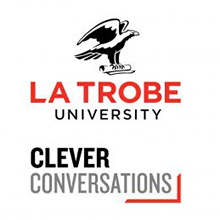News

NHMRC funding to improve antenatal care
A La Trobe University researcher has received almost $1 million in Federal Government funding to investigate ways to improve care for pregnant women.

Student achievements shine in Bendigo graduations
La Trobe Bendigo's graduation ceremonies celebrate students

Hats off to Mildura's newest graduates
Mildura students celebrate the end of their studies at graduation

Health innovation recognition in QS rankings
La Trobe recognised for health innovation in QS world subject rankings

La Trobe to purchase all renewable energy
La Trobe to purchase all renewable energy as it heads to Net Zero 2029

Report highlights need for more climate adaptation
Infrastructure Victoria report highlights need for greater climate cha
All media releases
Opinions
Is autism “over diagnosed” in Australia due to the NDIS, or is it being better identified?
No recent events are listed.




